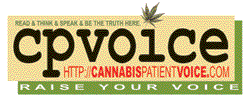New Kaiser Tracking Poll Finds Health Care Follows Only
Health Care Second To
Thursday, August 30, 2007
In order to assess what issues are on the public’s agenda, polling organizations including Kaiser usually ask about priorities for government or Congressional action or priorities for people’s vote. In our August tracking poll,
The survey finds that self-identified Democrats and independents tend to agree about the top three issues for government to address —
However, with the presidential election 15 months away, and any real Congressional debate about comprehensive health reform not expected until 2009, it may be too soon to gauge what the public wants the next president and Congress to do about health care or on what basis they’ll vote. But, with the primary campaigns heating up, we thought it may be at least as relevant to ask a more immediate question: what does the public want the presidential candidates to talk about in the campaign right now.
What emerges is a slightly different picture. Health rises sharply for Democrats and climbs to the number two issue for Republicans, just ahead of terrorism. Both findings are at least a little surprising: that any issue would rank as high as Iraq on any question related to the campaign (even if Democrats have always ranked health highly); and that Republicans would rank health as the number two issue for candidates to talk about (because it is generally believed that health is a less salient issue for Republicans). We do note that with immigration slipping from the limelight, and gas prices subsiding, something has to fill the void among domestic issues, and that issue could be health, including for Republicans. On the other hand, the current mortgage crisis could produce a different result the next time we poll.
When we asked specifically about what they would most like to hear presidential candidates talk about,
The August tracking poll also continues to examine people’s thoughts about the presidential candidates’ positions on, and commitment to, health care as an issue. As we found in our last two tracking polls, nearly six in 10 people (59 percent) still don’t know or can’t name a candidate who best represents their views on health, or says that no candidate represents their views.
Among the 41 percent who named a candidate, Senator Hillary Clinton remains the top candidate on this question, with 19 percent of the public overall, and 35 percent of Democrats saying she best represents their health care views. Senator Clinton’s numbers have inched up slightly on this question since March, when she was named by 14 percent of the public overall and 27 percent of Democrats (her share among independents has also inched up from 9 percent in March to 15 percent in August). Senator Barack Obama is the second ranking candidate on this question (named by 6 percent overall, and 9 percent of Democrats), and former Senator John Edwards ranks third (4 percent overall and 6 percent of Democrats).
Former New York Mayor Rudy Giuliani remains the top pick among Republicans, but only with 8 percent of Republicans (and 3 percent of the public overall) saying he best represents their views on health. Former Massachusetts Governor Mitt Romney (5 percent of Republicans, 2 percent overall) is the next most mentioned candidate, followed by Senator John McCain and former Senator Fred Thompson (both named by 2 percent of Republicans, 1 percent overall).
This latest Kaiser Health Tracking Poll: Election 2008, the third in a series, was designed and analyzed by researchers at the Kaiser Family Foundation. A nationally representative random sample of 1,500 adults was interviewed by telephone between August 2 and August 8, 2007. The margin of sampling error for the survey is plus or minus 3 percentage points; for results based on subgroups, the sampling error is higher.
Full results are available online here.
Kaiser Health Tracking Poll: Election 2008 - August 2007
This August 2007 tracking poll finds that health care remains the top domestic issue that the public wants presidential candidates to address in the campaign, trailing only
Both Republicans and Independents rank health care second to Iraq, while Democrats for the first time rank the two issues as equally important for the candidates to discuss.
The poll also examines the public’s perceptions of the presidential candidates’ positions and commitment to health care as an issue. Consistent with the previous two tracking polls, nearly six in 10 people don’t know or can’t name a candidate who best represents their own views on health.
The Kaiser Health Tracking Poll: Election 2008 is part of a broader effort by the Kaiser Family Foundation to provide a central hub for resources and information about health policy issues in the 2008 election. The August poll was designed and analyzed by Foundation researchers and involved a nationally representative random sample of 1,500 adults, who were interviewed by telephone between August 2 and August 8. The margin of sampling error for the survey is plus or minus 3 percentage points; for results based on subgroups, the sampling error is higher.




No comments:
Post a Comment